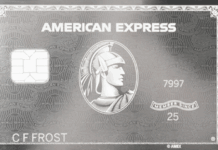NOTICE: This post references card features that have changed, expired, or are not currently available
Yesterday Nick published a thoughtful post: Which hotel program (Hyatt vs Hilton vs Marriott) is the most rewarding? His answer was that they’re about the same: If starting from scratch (elite-wise), you need to spend about 7 nights in average priced hotels to earn a free bottom-category night, and about 42 nights in average priced hotels to earn a free top-tier night. That’s an interesting answer, but “unfortunately, no one knows what the question is.*” That is, I found his analysis comprehensive but not satisfying because I’d like an answer based on different assumptions:
- Starting point: Nick’s analysis assumed that someone starts with no status at all. I’d like to look at each status level (low, mid-tier, high-tier) to see how rewarding the program is for members who already have that status.
- Credit cards: Most of Nick’s analysis did not assume that members had hotel credit cards, but I’d like to assume a $95 per year hotel credit card ($75 with Hyatt) from the get-go.
- Marriott award chart: Nick used the Marriott award chart that will be in effect from August 2018 through early 2019. I’d prefer to look further out and use the early 2019 award chart.
* This is a quote from The Hitchhiker’s Guide to the Galaxy in response to the finding that the answer to the Ultimate Question of Life, the Universe, and Everything was 42.
Credit Card Starting Point
These $95 per year ($75 for Hyatt) credit cards offer the following relevant perks:
- Marriott Premier Plus or Starwood Preferred Guest or Starwood Preferred Guest Business (as of August 2018):
- 6 points per dollar at Marriott/Starwood properties
- Automatic Silver status (low tier)
- 15 elite nights towards next level status
- Hilton Honors Ascend or Hilton Honors Business
- 12 points per dollar at Hilton properties
- Automatic Gold status (mid tier)
- Diamond status with $40K spend (top tier)
- Hyatt Visa Signature
- 3 points per dollar at Hyatt properties
- Automatic Discoverist status (low tier)
- Explorist status with $50K spend (mid tier)
Relevant Elite Tiers
Nick presented three levels of status: Base (e.g. no status), “Free Breakfast”, and Top Tier. Since the $95 / $75 credit cards all offer at least low tier status, I’m going to start with Low Tier in my analysis. I’ll keep Nick’s definition for “Free Breakfast” as mid tier (e.g. Marriott Platinum, Hyatt Explorist, and Hilton Gold).
| Status | Marriott | Hyatt | Hilton |
| Low | Silver | Discoverist | Silver |
| Mid | Platinum | Explorist | Gold |
| Top | Platinum Premier | Globalist | Diamond |
Points Earned Per Dollar at Hotels
The following table shows the number of points earned per dollar within each chain without a credit card (but with the above status definitions).
Points per dollar, hotel only
| Status | Marriott | Hyatt | Hilton |
| Low | 12 | 5.5 | 12 |
| Mid | 15 | 6 | 18 |
| Top | 17.5 | 6.5 | 20 |
Now lets assume that you have a $95 / $75 credit card and use it to pay for your stay. Points per dollar in this chart include the points shown above plus credit card points:
Points per dollar, including credit card spend
| Status | Marriott | Hyatt | Hilton |
| Low | 18 | 8.5 | N/A* |
| Mid | 21 | 9 | 30 |
| Top | 23.5 | 9.5 | 32 |
* The $95 Hilton credit card gives you Gold status so there’s no point in showing points per dollar earned if you have Silver status and the credit card.
Hotel spend required for a bottom category free night
Bottom Category points required for a free night (borrowing from Nick’s post):
- Marriott = 7,500 points (The “early 2019” award chart offers 5K off-peak properties, but I think it is fair to assume that finding those will be rare)
- Hyatt = 5,000 points
- Hilton = 10,000 points (Technically 5K points is lowest, but none of these are in the US)
Spend required for a free bottom category night:
| Status | Marriott |
Hyatt* | Hilton |
| Low | $417 | $588 | N/A |
| Mid | $357 | $556 | $333 |
| Top | $319 | $526 | $313 |
* Note that Hyatt offers opportunities to earn free nights after meeting various thresholds, so this chart slightly undervalues Hyatt (details here).
Hotel spend required for a top category free night
Top Category points required for a free night:
- Marriott:
60,000 points85K standard, 100K peak (I’m going with the “early 2019” award chart) - Hyatt: 30,000 points
- Hilton: 95,000 points
Spend required for a top category free night:
| Status | Marriott Standard |
Marriott Peak | Hyatt | Hilton |
| Low | $4,722 | $5,556 | $3,529 | N/A |
| Mid | $4,048 | $4,762 | $3,333 | $3,167 |
| Top | $3,617 | $4,255 | $3,158 | $2,969 |
Note that these calculations do not account for the fact that you are likely to move up in status before hitting these spend levels (Nick did account for this in his analyses FYI). In other words, actual spend required when starting from Low or Mid tier status would be a bit less than shown since you’ll earn higher elite tier bonuses with some of the spend.
Hotel spend required for an average hotel
It’s pretty tough to compare apples-to-apples across award charts when looking toward the middle. Instead, let’s use Pointimize’s hotel point valuation chart (found here). Pointimize calculates the median value per point observed from real-world award night searches. So, this data includes information across the entire award chart, not just the low or high end. Here are their observed median point values:
- Marriott: 0.72 cents per point
- Hyatt: 1.74 cents per point
- Hilton: 0.45 cents per point
We don’t know what Marriott’s point values will be next year, but Marriott has asserted that more properties will go down in price than up. So, it seems reasonable to use the 0.72 cents per point number for now.
In Nick’s post, he asserted that an average price for a hotel room is $131.56. With that number in mind, we can then calculate the median number of points required for each program:
- Marriott: $131.56 / 0.72 cents / point = 18,272 points per night
- Hyatt: $131.56 / 1.74 cents / point = 7,561 points per night
- Hilton: $131.56 / 0.45 cents / point = 29,236 points per night
We can now calculate spend required to get these average free nights:
Spend required for an “average” night
| Status | Marriott | Hyatt | Hilton |
| Low | $1015 | $890 | N/A* |
| Mid | $870 | $840 | $975 |
| Top | $778 | $796 | $913 |
Conclusion
Based on my assumptions (which vary quite a bit from Nick’s), I can conclude the following:
- If you’re interested in earning bottom category free nights from paid hotel stays, then Marriott and Hilton are roughly equal. Both are far better than Hyatt for this purpose.
- If you’re interested in earning top category free nights from paid hotel stays, Hyatt and Hilton are about equal. Both are far better than Marriott for this purpose.
- If you would like to spend your points at regular hotels — somewhere in the middle of the charts — then Hyatt has an edge for low-status, but Marriott quickly catches up once you get to mid or top status. Hilton is considerably more expensive though.
Now let’s summarize by program:
- Marriott (future Marriott, really) is rewarding for those seeking low and mid category award stays
- Hyatt is rewarding for mid and top category award stays
- Hilton is most rewarding at the edges: bottom and top category award stays. In the middle, they’re less competitive.
Separately I plan to compare the elite program benefits of each of these chains, along with a “bang for your buck” analysis. Which chain offers the best elite perks for the least number of nights required to get to that level? Stay tuned.





[…] perplexes me at times. I’ve previously showed that their program is reasonably rewarding (Greg’s take was a bit different than mine) and then Greg ran the math on how Hilton’s not even a bad […]
I know this makes things significantly more complicated, but you have to factor in hotel promotions too. I do a quarter-by-quarter analysis based on promotions. Right now with double points, Hilton is twice as rewarding as advertised above. Last quarter with the 2,000 bonus points per stay it made WAY more sense for me to stay at Hilton’s than Marriott’s since I mostly stay one night at a time. Marriott’s promotion is useless to me as I never spend more than 2 or 3 days in one spot. I built a spreadsheet that I update each quarter that looks at % rebate based on fair values for points, and it can vary pretty significantly based on current promotion and how long your stay is.
[…] our different takes on which hotel chain (Hyatt, Hilton, or Marriott) was most rewarding (here and here). We looked at how much you’d have to stay at those hotels in order to earn free nights. […]
Which hotel is pictured in the summary page for this article?
One of the summary views showed the Hilton Bodrum Turkbuku resort & spa. I’m not sure if that’s the one you saw though
[…] Which hotel program (Hyatt/Hilton/Marriott) is the most rewarding? Frequent Miler […]
[…] Greg’s take: Which hotel program (Hyatt vs Hilton vs Marriott) is the most rewarding? […]
I don’t see how the Hilton Aspire isn’t the top card for hotel travel at the moment. Agreed with the other comment that anyone staying that many nights is having work pay for their rooms. That changes the calculus immensely (for instance I just took the more expensive Regular Rate + 500 points choice for myHoJo hotel booking, just because someone else is paying). I’m fortunate enough right now to be staying at the Hilton for work and am getting off-the-charts points at the moment. For my last stay of 4 nights (170/nt after tax) I got 7500 base points, 7500 Diamond points, 7500 points Q2 double promotion, 1000 points MyWay. Tack on another 11,000 points on the 14X Aspire card, and that’s nearly 35000 points for 4 night stay. Since I plan to use my points at the Hilton Bali 4000/nt (you guys left off the 5th night free benefit from your analysis), that’s two free nights for each night I paid for. Totally insane, can’t wait to get back there next week. The 11k points sounds great on the Aspire, but probably gonna go for $150 cash back with Citi 4th Night next stay. Nothing like #Cash.
But this leaves out the free breakfast. I know that many frequent travelers don’t value a hotel breakfast highly (because it gets sickening after a while) but infrequent travelers, esp family travelers, are a different matter. Your analysis seemed more targeted at us. If one values a free breakfast at $20/nt, you could treat it as a $20 rebate, so for mid-tier hotels, subtract $20 from 136, divide out by points, and by my calculations, you’d end up at $826.76 required spend – less than the competition.
Of course the premise of these pieces is only partially useful. People thinking of how much hotel spend = free nights would tend to have higher elite status, which changes everything. (If we’re talking about regular spend, organic or MS, you’d have to look to the ability to get URs.) This is most useful for those of us (me!) who travel for work only a couple times per year and can choose where to stay.
Looking just at hotel spend, unless you have a top elite status, it looks like Hilton wins in any of the three categories. And that’s true even if you ignore the double points redemptions etc that seem always to be around.
I would say that Ultimate Rewards being a transfer partner of Hyatt makes it a more compelling option. It offers the best value from that perspective since Hilton and Marriott offer below average transfer rates from transferable currencies.
Very interesting write up. I had also thought Hilton was the best for road warriors because of the promos they run, the ease of getting good status (credit card), and the return you get on paid stays with a credit card and status.
Hyatt, to me, is the easiest in terms of manufacturing award stays when including outside currencies but their limited reach means you need a second partner.
That is why I have always had Hilton and Hyatt as my two preferred options.
Due to popular demand, I’m working on a post that looks at earning free nights through credit card spend. I’ll publish it on Monday morning. Spoiler: The best overall option is clearly using Chase Ultimate Rewards cards to earn points and then transferring to Hyatt for free nights. With supermarket spend, Hilton looks good. I don’t see any scenario where Marriott wins.
Dont forget Hilton 7 points on restaurants with the Aspire Card
But only 3 points for supermarket spend vs 6 with Ascend.
Use Everydat Preferred…4.5MR equal 9 Hilton at supermarket
I am in the minority, but I would like to see someone do a study on which hotel program is the most rewarding given the following: 1) No or very little business travel; 2) A varying amount of family leisure travel, and 3) relying mostly on points gained from credit cards. Any thoughtsa?
Anyone paying for hotels to worry about this analysis is being reimbursed by an employer. What would be more relevant to your readers is what is the best bang for your MS buck.
I am a Hyatt globalist. Plan to continue to be one because it taks the fewest points to stay at their properties and the points are very easy to earn thru the Chase UR program. I have the old Chase Ink cards which give 5X at office supply stores. Because of the recent Staples and OD 200 gift card promos, generated an easy 200k points at minimal cost. Can transfer to Hyatt and get up to 5 cents value. Can’t do that with either Hilton or Marriott. Only downside to Hyatt status is their small footprint and recent tripling of the stay requirement to maintain globalist status. However, Hyatt has been running promos to keep status by staying 20 nights over a compressed period of time. If you have the flexibility to do that, no problem to maintain status.
I think there are two other important components that should be considered: Marriott Night and Flights and manufactured spending. Even though it’s obviously more points to book a Marriott travel package it’s an easy way to fill up an airline balance and turn Marriott points into far more valuable point currencies. Also, many readers don’t spend money on hotels (I haven’t in years) so the analysis using hotel spend is irrelevant to me (and I’m assuming some other readers as well). I’d love to see Nick’s and Greg’s thoughts on these issues and if they’d come to the same conclusions.
I would agree, the people reading this blog don’t generally desire to pay for hotels, that’s what credit card bonuses are for. Only reimbursed business travel is the only hotel I would pay for. For leisure? Only if I ran out of points and or had no other options.
Good idea! Working on it…
Man, would that you could get free b’fast at mid-level (Explorist) with Hyatt. Yes, you do get 4 to 8 (assuming you re-qualify) lounge access passes or upgrades annually, but lounges (with b’fast) are not that common in Hyatt properties in the U.S. That said, you do get a guaranteed at check in 2pm late checkout, which is nigh-on impossible to wangle even as Hilton Diamond… all of which is to say that apples to apples comparisons, while desirable, are not easy to put together, and different kinds of travelers can put vastly different weights on these things in making their decisions at what is nominally the same level. I, for one, do not like having to call down in am of departure to be sure that I don’t have to be out at 11am….